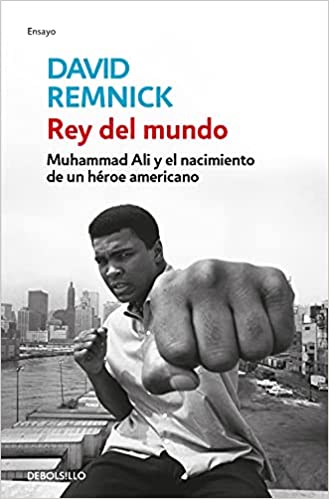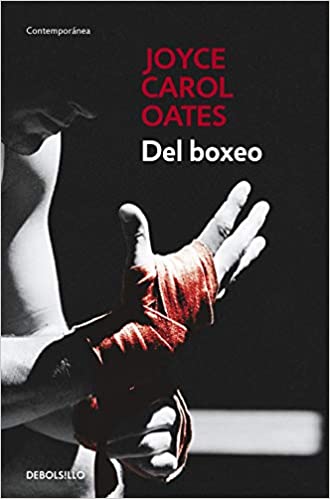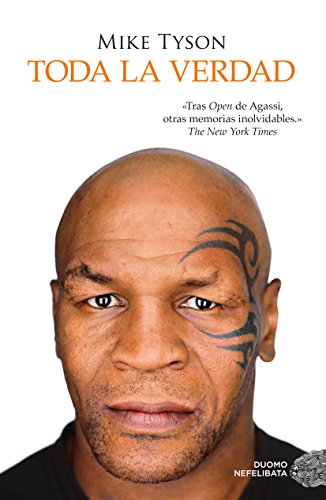Let's be honest, thanks to the Rocky film series, boxing gained that epicness that only fiction can give to any aspect of life. But beyond that Sylvester Stallone subjected to a thousand and one beatings from which he finally emerged triumphant after having kissed the canvas, we also find literature where the pugilistic acquires that scope of fighting face to face with life itself. Because with each punch thrown we can sense a rage and a desire to improve that goes beyond simple victory against the opponent.
Life hits harder than any glove between the twelve strings. And on many occasions the personal circumstances of the most famous boxers underpin this idea of combat at all levels, of confrontation with misfortune, but also of the final surrender to perdition. Because the glory of the ring sometimes only disguises that defeat of the soul. A soul that dwells as the alter ego of Dorian Gray in that painting where the grooves of existence are being marked.
Not that every boxer carries that juicy literary aspect between glory and perdition. But there are several matching examples. And about many of them it has been written in order to introduce us to the fascinating paradox, the ambivalence of success and defeat as a thing found face to face. From Rocky Marciano to Muhamad Ali or Hurricane Carter in the United States. Or from Urtain to Perico Fernández. Even more recently, cases such as those of Tyson or Poli Díaz, the shadow of tragedy has loomed over the most recognized fighters as curses of Olympus on many occasions.
Top 3 best boxing books
King of the world, by David remnick
When that night in 1964, Muhammad Ali, then known as Cassius Clay, jumped into the ring to face Sonny Liston, he was regarded by everyone as an irritating obnoxious man who moved and talked too much. Six rounds later, Ali had not only become the new heavyweight champion of the world: he was the "new black man" who would soon transform America's racial politics, popular culture, and notions of heroism.
Exploring Ali's rise from the gyms of Louisville, Kentucky, the author creates a canvas of unparalleled wealth and provides a detailed portrait of the mobs that ran the business, the columnists who dominated sports reporting, a fearless Norman Mailer and of an enigmatic Malcom X.
No one has captured Ali with as much vividness, passion and sagacity as David Remnick, Pulitzer Prize winner and director of The New Yorker. But King of the world It is much more: it is the chronicle of one of the most vital and vertiginous times of the United States - the prodigious decade -; and does justice to the speed, grace, courage, humor and enthusiasm of one of the greatest athletes and one of the most compelling personalities of our time.
From boxing, by Joyce Carol Oates
Nobody better than Joyce carol oates to make boxing literature. This entry never had the intention of providing technical information about this sport but rather a desire to highlight its most interesting aspect, the literature between epic and tragic that links with the impossible desires of transcendence, eternal youth and human immortality...
Of boxing it is a simple, dramatic and evocatively profound essay. It hits you turning your memories into jumps, hooks or straight right. It puts you in a position where insensitivity only turns you into one thing: a boxer.
An essay where the successful American novelist pours accurate reflections on being poor and stubborn, on the need to create heroes and know how to succeed, taking her gaze and leading ours towards the roots of boxing, contributing unique points of view on a subject about which they wrote authors such as Ernest Hemingway or Mark Twain: boxing as a metaphor, as spectacle and history, boxing as seen by literature, cinema and women.
All the truth
If there is a boxer of recent times who has managed to carry that slab of the myth of glory and doom, it is undoubtedly Tyson. Having no rivals led him to that idea of the invincible that ends up bringing him to the top just before reaching the abyss ...
Boxing, for Tyson, was always a matter of life and death. He grew up without a father, surrounded by people who expressed their love to him with blows and in a street environment where he was the target of ridicule from older boys. But he was able to find, thanks to boxing, the escape route that allowed him to be, at only twenty years old, world heavyweight champion and not, instead, a juvenile delinquent.
But the success brought him, over time, problems. So many, that Tyson ended up going to jail, from where he came out with a single desire: to write his memoirs and shape a biography marked not only by misery and boxing, but also by fame, for money, for drugs and women, everything that constitutes Tyson's career, the biography of a man, of a legend in and out of the ring. "The epic tale of a man who fights against his fears." Spike Lee "A perfect mix between a Tarantino movie and a Tom Wolfe short story." Michiko Kakutani, The New York Times “Powerful and haunting. A vibrant story like few others. " Wall Street Journal.



